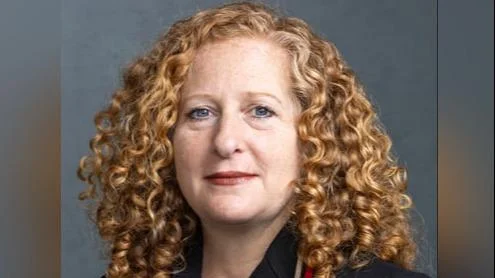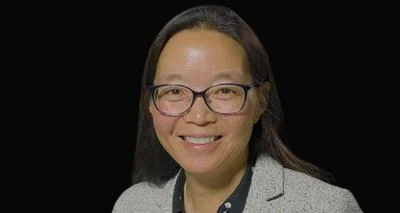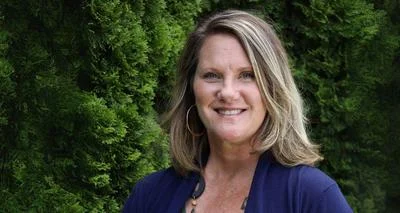Jennifer Mnookin Chancellor | Official website
Jennifer Mnookin Chancellor | Official website
The number of employers that appeared at a School of Computer, Data and Information Sciences career fair in 2022 shows their high level of interest in UW graduates. One way for employers to get a look at prospective future employees, and for students to get real-world experience, is to take part in experiential learning courses.
Peter Daly was a fourth-year student at UW–Madison in fall 2020 when he took the first Computer Sciences capstone course taught by Amber Field. Field had selected Daly and 25 other CS majors to participate in this pilot experiential learning class, pairing companies with self-selected teams of students to work on real-world problems.
Daly found himself on a team working with Capital One, based in McLean, Virginia. He admits that, not knowing how technically advanced the company was at the time, “it wasn’t a company that was necessarily on my radar as a place to work.” As a graduating senior, however, he paid close attention to his Capital One mentors, who “had nothing but praise for the company and then generously offered to act as a referral for my application. I ended up applying and I got the offer, and the rest is history.”
Now, Daly serves as a mentor for current CS capstone students. “The fact that the university is offering what is essentially an internship to these students is great,” says Daly.
Experiential learning at UW–Madison includes practicums, internships, or capstone courses designed to prepare students for professional careers while providing employers with fresh insights. Hands-on learning experiences are integrated into nearly every discipline on campus.
Amber Field now teaches the Computer Sciences capstone course twice annually. With extensive experience as a software engineer and manager at companies such as IBM and National Geographic, she aims to build skills most needed by employers—in her case, agile software development skills.
Rohan Ayyagari, who took the capstone course in spring 2024, stated: “With a class like this you know right from the get-go this is how companies do it.”
Field structures her class to replicate real work environments closely. She includes product management MBA students and UX Master’s students to create cross-functional teams that deliver better final products.
Each partner company provides unique experiences based on its needs. Daly participates partly to ensure students learn marketable skills they might not acquire elsewhere.
“There was a moment probably three or four months into my job at Capital One where something just clicked for me,” recalls Daly. He emphasizes wanting students "to have that moment click before they’re full-time employees."
Ayyagari's team created a full stack banking application under Daly's mentorship. This project allowed them insight into front-end and back-end programming along with cloud deployment processes.
Last Lock founder Jack Ryan values giving projects realistic chances of becoming part of their product roadmap. He states: “Mentors provide value through their knowledge while companies evaluate potential employees.”
In another example from UW–Madison’s Wisconsin School of Business (WSB), Master of Science in Business Analytics (MSBA) students engage in consulting practicums with various companies. Halley Jones notes employers quickly realize MSBA students possess unique skills valuable beyond mentorship roles.
Robert Behnke from Fair Indigo praised MSBA student teams' ability "to present data lingo" effectively within smaller companies where leaders hold varied responsibilities.
Jay Page highlights MSBA programs develop technical expertise alongside essential soft skills like teamwork and presentation confidence.
Luqman Godil appreciated tackling real workplace challenges during his practicum with Fetch Rewards before joining them permanently post-graduation.
Justin Hines reminds industry partners about ongoing engagement beyond problem-solving exercises: “We’re not just solving your problems and walking away.”
Field notes successful partnerships give employers extended evaluation periods over semesters compared to typical summer internships: "I’m always impressed by quality work...students care deeply about doing something meaningful."
The future looks promising for experiential learning initiatives at UW–Madison according to WSB Dean Vallabh Sambamurthy’s goal for all business undergraduates completing such experiences by 2028.





 Alerts Sign-up
Alerts Sign-up